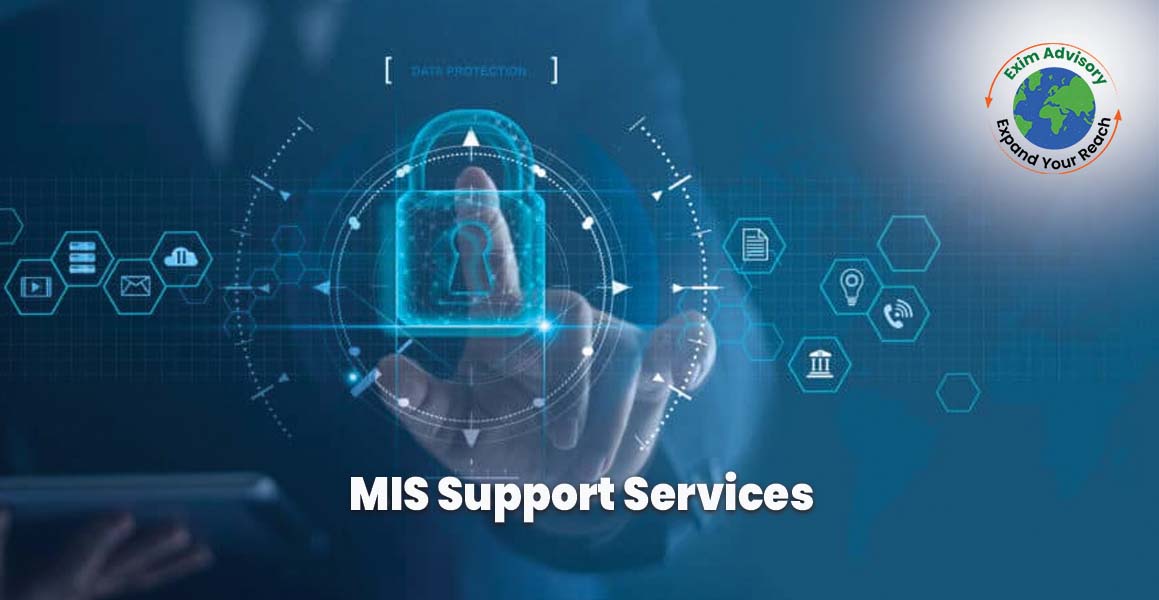
MIS Support Services provide comprehensive solutions for managing and analyzing organizational data, enabling businesses to make informed decisions and drive operational efficiency. These services encompass the design, implementation, and ongoing management of Management Information Systems (MIS) that deliver timely, accurate, and actionable insights. By leveraging advanced analytics and real-time reporting tools, companies can streamline their workflows, monitor performance, and maintain a competitive edge in the marketplace.
What Is MIS Support Services?
MIS Support Services refer to the range of services that help organizations collect, process, and analyze data to generate meaningful business insights. This includes the development and maintenance of MIS platforms, the creation of dashboards and reports, and the integration of data from various sources to provide a unified view of business performance. The service is aimed at ensuring that decision-makers have access to accurate, up-to-date information that supports strategic planning and operational control.
Key Characteristics
- Real-Time Reporting: Provides up-to-date dashboards and performance reports that enable quick decision-making.
- Data Integration: Consolidates data from multiple sources to offer a comprehensive view of business operations.
- Customizable Solutions: Tailored reporting and analytics tools to meet the unique requirements of each organization.
- Scalability: Flexible systems that grow with the business and adapt to changing data needs.
- User-Friendly Interface: Intuitive designs that facilitate easy access to data for non-technical users.
- Enhanced Security: Robust measures to protect sensitive business data and ensure compliance with data protection regulations.
Why Is MIS Support Services Important?
MIS Support Services are critical because they:
- Improve Decision-Making: Deliver accurate and timely insights that support strategic and operational decisions.
- Boost Efficiency: Automate routine data collection and reporting processes, reducing manual errors and saving time.
- Enhance Competitive Advantage: Enable organizations to quickly adapt to market changes through informed, data-driven strategies.
- Facilitate Performance Monitoring: Allow continuous tracking of key performance indicators (KPIs) to ensure business objectives are met.
- Support Financial Planning: Provide detailed financial analysis and forecasts that aid in budgeting and cost management.
- Strengthen Compliance: Ensure that data management practices meet regulatory standards and industry best practices.
Industries Covered Under MIS Support Services
MIS Support Services are applicable across a wide range of industries, including:
- Manufacturing: Optimizing production processes, inventory management, and quality control through data analytics.
- Information Technology: Streamlining operations, monitoring project performance, and managing software development metrics.
- Healthcare: Enhancing patient care, operational efficiency, and regulatory compliance through data integration.
- Retail and E-Commerce: Managing sales performance, customer behavior analytics, and supply chain efficiency.
- Financial Services: Supporting risk management, compliance, and financial reporting through advanced analytics.
- Logistics and Supply Chain: Improving route optimization, inventory turnover, and operational cost management.
- Education: Streamlining administrative processes, student performance tracking, and resource allocation.
How to Achieve MIS Support Services
The process for achieving effective MIS Support Services involves several structured steps:
- Initial Consultation: Engage with MIS experts to assess current data management practices and identify areas for improvement.
- Requirements Analysis: Conduct a comprehensive review of the organization’s data sources, existing systems, and reporting needs. Define key performance indicators (KPIs) and objectives for the MIS.
- System Design and Integration: Develop a customized MIS solution that integrates data from various departments. This includes designing dashboards, setting up data warehouses, and ensuring seamless data flow.
- Implementation and Training: Deploy the MIS solution and provide training sessions for staff to ensure they can effectively use the system and interpret the reports.
- Ongoing Support and Maintenance: Provide continuous technical support, regular system updates, and periodic performance reviews to ensure the MIS remains aligned with business goals.
What Documents Are Required for MIS Support Services?
To facilitate the implementation and maintenance of MIS Support Services, organizations typically need to compile:
- Detailed requirements and functional specification documents.
- Existing process documentation and data flow diagrams.
- Historical performance reports and financial statements.
- Records of key performance indicators (KPIs) and business metrics.
- Documentation of current IT infrastructure and data sources.
- Training manuals and user guides for MIS tools.
- Any additional documents that outline business goals and strategic objectives.
Fee Structure
The fee structure for MIS Support Services generally includes:
- Consultation Fees: Charges for the initial assessment and requirements analysis.
- Implementation Fees: Costs associated with system design, integration, and deployment.
- Training and Support Fees: Expenses for training sessions, user support, and ongoing system maintenance.
- Audit and Review Charges: Fees for periodic performance audits and system reviews.
- Consultancy Fees: Optional charges for engaging external experts for specialized support.
- Renewal/Update Fees: Periodic costs for system updates and compliance with evolving business needs.
Fees vary based on the complexity of the MIS solution, the scale of data integration, and the level of ongoing support required.
Challenges and Solutions for Best Compliance Practices
Common challenges in implementing MIS Support Services include:
- Data Integration Issues: Difficulty in consolidating data from disparate systems and sources.
- System Complexity: Managing and maintaining complex IT infrastructures that support MIS.
- User Adoption: Ensuring that employees are trained and comfortable using new reporting tools.
- Data Accuracy: Maintaining the integrity and accuracy of the data being collected and reported.
- Cost Management: Balancing the initial investment with long-term benefits and operational efficiency.
Effective solutions to these challenges include:
- Conducting comprehensive data audits to ensure accurate integration across systems.
- Simplifying system architecture by leveraging scalable, user-friendly solutions.
- Providing continuous training and support to promote high user adoption.
- Implementing robust data validation and quality control processes.
- Engaging experienced consultants to optimize cost efficiency and streamline implementation.
- Utilizing digital tools for real-time monitoring and analytics to maintain data integrity.